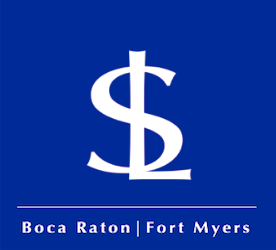Schneck Legal offers legal services and governmental affairs consulting services to both public and private sector clients related to construction law issues and the construction of public infrastructure projects.
Mr. Schneck has handled numerous construction claims and disputes on behalf of contractors, developers, engineers, homeowners, materials suppliers, public agencies, and subcontractors. These claims and disputes involved issues related to contract interpretation; payment claims; construction liens; insurance coverage disputes; disputes over scope of work changes; change in site conditions; contamination and environmental issues; indoor air quality; delay and disruption claims; construction defects; design deficiencies; and warranty issues.
Schneck Legal compliments its Construction Law practice with the knowledge of numerous legal disciplines (contract, insurance/surety and negligence) and the related regulatory frameworks (land use & environmental permitting and local, state & federal building regulations). Additionally, Schneck Legal is capable of prosecuting and defending liability claims arising from construction contracts, and effectively negotiating those claims when necessary. Inevitably, a construction claim will need the expertise from qualified architects, engineers, licensed contractors, and other appropriate professionals to substantiate or defend against a claim. Through his previous experiences, Mr. Schneck has developed relationship with numerous qualified and knowledgeable consultants to enlist if such expert opinion is necessary.
An up front, proactive approach to drafting construction contracts and planning the project can greatly reduce the liability risks and prevent costly project delays. Schneck Legal provides guidance for clients seeking to establish a clear hierarchy and understanding of construction contract documents and the scheduling of the activities critical to the project’s completion.
Public Works Construction Projects
Through his work at FDOT, Lee County and the Lee County Port Authority, Mr. Schneck has demonstrated experience in each phase of a public infrastructure project, including the planning, permitting, financing, constructing and operating phases. Public Works construction contracts often include a large collection of the documents including: the executed agreement, payment and performance bond, change orders, addenda, General Conditions, Supplementary Conditions, plans/drawings and specifications. Often, these documents contain conflicting terms, which can lead to owner-contractor disputes that would be otherwise preventable with well organized and clearly written contract documents.
General Conditions will define the obligations and rights on how to execute the project. Supplementary Conditions are an extension of the contract and the general conditions that specify specific conditions and clauses for each particular project or job. The specifications provide the details on the method and manner of performing the work, or the quantities and qualities of materials and labor to be furnished under the contract. Specifications can be broken down into several other categories including:
Standard Specifications: setting out or relating to the method or manner of performing work, or to the quantities and qualities of materials and labor.
Supplemental Specifications: Approved additions and revisions to the Standard Specifications.
Special Provisions: Specific clauses that add to or revise the Standard Specifications or supplemental specifications, setting forth conditions varying from or additional to the Standard Specifications applicable to a specific project.
Technical Special Provisions: Specifications, of a technical nature, prepared, signed, and sealed by an engineer.
Developmental Specification: A specification developed around a new process, procedure, or material.
To avoid conflicting terms, and in cases of discrepancy, construction contracts should clearly establish the hierarchy of the contract documents. The typical governing order of the construction contract documents is as follows:
Change Orders
Addenda
Executed Agreement
General Conditions
Supplementary conditions
Plans/Drawings
Special Provisions.
Technical Special Provisions
Design Standards
Developmental Specifications
Supplemental Specifications
Standard Specifications
Understanding this hierarchy and the conditions, provisions and specifications is critical when making owner decisions on approval of project work and materials. Properly inspecting, testing, or otherwise reviewing and approving work in accordance with the contract documents can avoid costly delays and disputes associated with removing and replacing deficient work and materials.
In addition to understanding the hierarchy of the contract documents, a complete and thorough understanding of the project sequencing is needed to prepare the construction schedule for a project. Poor scheduling of a project’s critical activities will likely result in delays in completion time and reduction in the project’s profit margins. Utilizing the Critical Path Method (“CPM”), construction projects can be scheduled in a manner that can eliminate delays and facilitate the timely completion of a project. CPM is the most widely used scheduling technique for construction projects and is often used by courts to resolve litigation.
CPM takes a comprehensive view of a project and its moving parts, to determine which activities on are on the critical path and which activities can “float.” The critical path itself represents the set or sequence of predecessor/successor activities, which will take the longest time to complete. An activity on the critical path cannot be started until its predecessor activity is complete; if it is delayed for a day, the entire project will be delayed for a day unless the activity following the delayed activity is completed a day earlier. Non-critical path activities offer scheduling flexibility and actual starting times that float until the activity is most economical to the project (to correspond with material deliveries or to improve the project’s cash flow).
Regulatory & Permitting
Schneck Legal compliments its Construction Law practice with the knowledge of the related regulatory frameworks surrounding public construction projects in Florida. Failing to properly secure regulatory approvals can prove to be just as costly as severe design flaws. Mr. Schneck knowledge of state and federal environmental permitting, local land use and development approvals, and the local, state and federal building regulations, is invaluable when preparing contract documents or litigating delay claims. This combination of practice areas and knowledge base in one attorney is a special service that is rarely matched by individuals in other law firms.
Dispute Resolution & Litigation
Schneck Legal is capable of prosecuting and defending liability claims arising from construction contracts, and effectively negotiating those claims when necessary. Inevitably, a construction claim will need the expertise from qualified architects, engineers, licensed contractors, and other appropriate professionals to substantiate or defend against a claim. Through his previous experiences, Mr. Schneck has developed relationship with numerous qualified and knowledgeable consultants to enlist if such expert opinion is necessary. Mr. Schneck also has extensive experience in establishing, and leading teams of experts and consultants in defense or prosecution of such claims.

